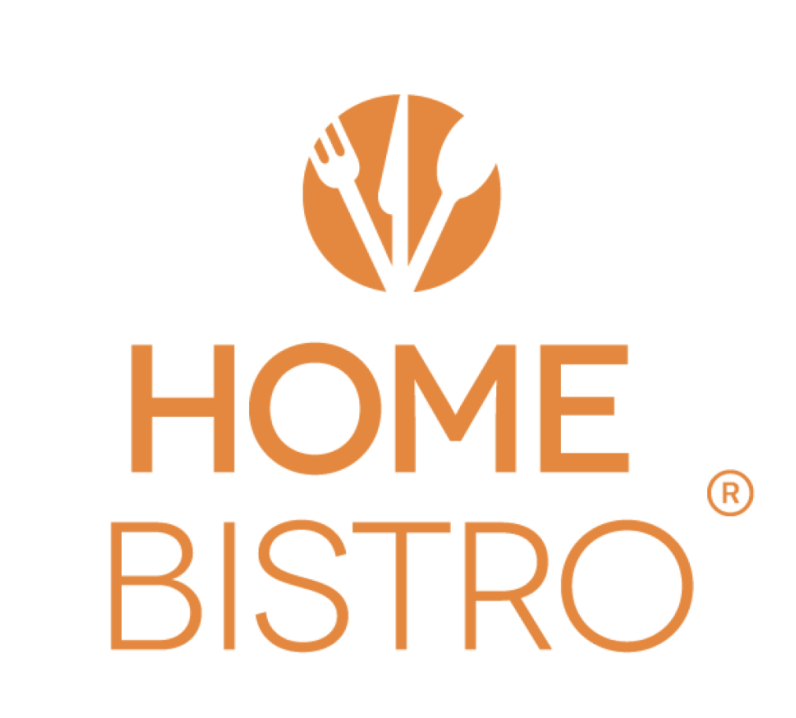Ed tech has come a long way since slide-rules, ditto masters and syncing up pictures in a slide projector with music from a cassette tape.
Tools for instructors, from preschool to corporate training now include virtual reality, artificial intelligence and gamification – a fancy word for playing games to learn.
From apps that teach people how to identify plants on a hike or in a garden, to games that teach mathematics, planning, and creativity, to those that track athletic performance and nutrition, there are more opportunities available for EVERYONE to learn.
The dilemma is engagement. Everybody learns from their own personal sensory preferences and tactile-physical learners tend to suffer the most, from an accessibility and affordability viewpoint.
When learning went remote in 2020, children and adults alike fell through the cracks that self-directed learning creates and ed-tech proposes to fill those gaps. But there’s also a concern about the line between teaching and feeding tech addiction. And there’s a strong move by ed tech companies toward the more lucrative corporate clients instead of just teaching kids.
Last year, ed-tech startups raised over $2.2 billion in venture and private equity capital across 130 deals. [source: EdSurge]
Here are some of the companies addressing different needs in the ed tech space.
Looking at last year’s largest funded US EdTech deals, the top five companies were Roblox, Coursera, CampusLogic, MasterClass and Course Hero. Funding for the top 10 deals came from Andreessen Horowitz, The National Education Association (NEA), Dragoneer Investment Group, Fidelity Management and Research, and other venture firms. [source: EdSurge] Since Roblox and Coursera went public in March, 2021, I’ll give more detail about them below.
There are some others in the space to pay attention to because they address needs in the space, and they’re getting talked about by ed tech academics, and professionals in learning and development circles.
Private Companies
CampusLogic
Parents getting their children into and through college is a tough grind. In 2010, I was taking classes with my son on scholarship applications, but was about 3 years too late to get started if we really wanted to cover his entire scholastic experience.
He did earn a few decent scholarships based on ACT scores and scholarship contests, but still earned his bachelors in electrical engineering with about $40,000 in debt. More than a decade later, there are fewer personnel accessible to students to navigate these waters. The documentation/paperwork is daunting, websites difficult to navigate and time consuming.
CampusLogic addresses this market gap in a clear, concise and easily navigated process to apply for schools and funding. The company also addresses the new normal of online learning as opposed to on-campus learning. The Covid19 Pandemic pushed more colleges into the online learning space.
CampusLogic is working with institutions to manage what they call 7 disruptors that affect the financial aid process, which includes the same vulnerabilities that financial institutions, government, and healthcare – especially cybersecurity. They navigated the pandemic space by taking the lead when the CARES Act sent the first wave of funding to college campuses. [source: go.campuslogic.com]
CampusLogic has raised over $192 Million since receiving its first grant in July of 2015. Since then they’ve had Series A and B rounds of funding plus a private equity round in July, 2020.
MasterClass
Masterclass targets the adult education market, appealing to hobby learners and those wanting to skill up professionally.. Who is the best of the best in their industry? And would you like to take a class from them? You could take a class on negotiation by “Never Split the Difference” author, Chris Voss. Imagine taking filmmaking or story telling from Ron Howard (Apollo 13, A Beautiful Mind, and many other features),
Martin Scorsese (Wolf of Wall Street and Cape Fear are just two) or James Cameron (Terminator, Titanic and Avatar), or LeVar Burton of Roots, Star Trek/Next Generation and PBS Reading Rainbow. How about a cooking class from Gordon Ramsay? What about how to survive in the wilderness with Jessie Krebs?
Classes ranging from business, to sports and gaming, to science and tech, and everything else imaginable; if someone is well known for a skill in a genre, MasterClass has an education subscription that would give you access.
Masterclass launched its seed round of funding in September, 2013; it’s most recent round (Series F) was just this past May (2021) which brought in $225 Million. Top investors include Fidelity Management and Research, United Talent Agency Ventures (UTA), Owl Ventures and others. [source: CrunchBase]
Course Hero
Need a tutor for a k-12 child or college student? Need 24/7 access? Don’t care if it’s the same tutor each time? Course Hero was founded by Andrew Grauer while a student at Cornell in 2006 as a knowledge-base for college students to share lectures, class notes, exams and assignments.
The company has been confronted with concerns about enabling students to cheat on term papers and other serious grade-impacting resources. Course Hero has in its terms of use that users are bound by copyright, honor codes and academic integrity. Also teachers use plagiarism detection scanners like SafeAssign and Turnitin and Coursehero allows scanners to access its knowledge base to help them spot cheaters.
Recently, Course Hero collaborated with non-profit CodePath.org, which is making computer science education more available to underrepresented students, through pre-internships to help college juniors gain experience while skilling up on their way to careers in engineering and other tech fields. [source: prnewswire.com] In the last year Course Hero acquired LitCharts (which emerged out of Sparknotes – a popular literature study guide resource) and Symbolab (answer-engine for math), which expanded the knowledge base Course Hero offers students.
Besides knowledge base, Course Hero also has tutors who respond within 3 days to Q & A type questions. The company website advertises that top tutors can earn as much as $1500 in an independent contractor relationship with the company.
Course Hero is currently valued at $1.1 Billion with their latest round of funding (series B) last year coming in at $80 Mil. [source: TechCrunch.com]
VIPKID
Just after I entered grad school, I heard about a night job teaching English to students in China. The organization wanted native English speakers to teach their classes virtually. Anyone who has ever received a telemarketing call from some call center overseas knows how valuable this native speaker training would be.
VIPKid is not listed on the top 10 list by EdSurge. Based out of China and San Francisco, I wanted to include it, because of its innovative way to teach language, and when I reached out to a few colleagues in Ed Tech, asking the question – “Who do you see as the innovators and up and coming leaders in Ed Tech?” VIPKid kept getting mentioned.
VIPKid teachers earn anywhere from $14 to $22 per hour, and only teach an hour a day, typically. So it’s not a huge amount of money, but it adds another $500 or so per month to the household income.
According to Crunchbase, the company has raised $1.1 Billion in 10 rounds of funding, starting in 2010, and their last influx of $150 Million in 2019 (Series E) . There were rumblings of VIPKid launching an IPO this year, but with China cracking down on after-school tutoring adding intense pressure on the country’s children, there are now no plans to kick off an IPO anytime soon. While two other Chinese companies in the ed tech space are proceeding with their IPO, investors are cautious with the added regulatory oversight on companies that prey on parental FOMO (fear of missing out). [source: Forbes]
Other innovative language focused companies include Duolingo (incorporates gamification), and Voxy; Rosetta Stone has been publicly traded since 2009.
Publicly Traded Ed Tech Companies
Resources in the ed tech space include your basic Microsoft Office Suite or the Google equivalents, virtual conferencing tools like Zoom, WebEx, AdobeConnect, Facetime, Gatherly, Google Hangouts and Google Meet, GoToMeeting and Microsoft Teams and others. LinkedIn acquired Lynda.com in their race to top the adult education choices as well. Teachers also use research polling tools like Microsoft Forms, Google Forms and Qualtrics. As a grad student I had access to Qualtrics who had contracted with my school for student use at no charge. After being acquired by SAP, the larger company launched Qualtrics into a public offering in 2021 where SAP remains the majority shareholder. [source: Forbes]
Some other companies in the Ed Tech space that lead their specific lanes:
Roblox (RBLX)
Roblox topped the funding list for 2020 with $150 Mil. They also top the list in the gaming and coding education area. But they also are a social game platform, where players work together to build the games. The fact that adult gamers are familiar with the platform (but refer to it as a kids place, even while they might still play Minecraft and Stardew Valley as adults) indicates market penetration with over 42 million daily users world-wide. [source: Statista]
Roblox touts 3D in its tool chest for kids and coding novices to develop their own games, and share. The focus on helping kids have fun while learning basic skills in coding, game design and entrepreneurship. A caution for parents is to be aware of parental controls, as children can be targeted by annoying and disruptive players. And content can be an issue if a child gets into content that’s rated for older children. Family Online Safety Institute provides a checklist for parents to take control, from online safety to bedtime limits. [source: fosi.org]
Roblox went public in March, 2021 at $45 per share, surging to $68 on that first day. [source: Forbes] Though RBLX has traded as high as $103.87 per share, more recent trading has ranged between $75 and $81.
Instructure (INST)
Instructure’s CANVAS is an LMS (Learning Management System) product. If you’ve been to college in the last 10 years, chances are you have watched lessons recorded and uploaded into lessons. Quizzes, exams, and assignments, as well as class discussions are all housed in the Instructure platform known as “Canvas”. Resources can be accessed via app or browser. Grades are also delivered through the app. Instructure seems to dominate the higher education space, but is also found in the K-12 space. Teachers site ease of use in uploading content, grading assignments and tracking student engagement, while students will always adapt to whichever platform used by the instructor and the school.
Coursera (COUR)
Similar to Instructure, Coursera is an online program manager. Coursera serves universities offering fully online bachelors and masters programs, but also provides resources for employees of business and government. But the largest audience segment appeals directly to consumers with their own courses, touting over 5100 courses in various specializations. This is where Coursera differentiates itself from Instructure.
Coursera has over 77 million students learning on Coursera, and recently made its public debut in March, 2021 valued at $7 Billion, with opening price at $33 per share. While surging to a high of 62.53 in the first days, the stock now channels between $36 and $40.
Bottom Line
Navigating the startup waters of Ed Tech always leads me back to the man who is considered the Father of Instructional Design at Utah State University where I earned my masters.
Dr. Merrill suggested that it isn’t learning if you can’t solve a new problem with what you learned from solving the last problem. As I evaluate ed tech start ups,
I consider the foundational debate between technology and actual outcomes to help me avoid “bright-shiny-objects” in the learning space. Meaningful learning has to engage the learner, not just entertain or short-cut the learning process.
Comments are closed.






2 Comments
Goood post. I learn something new and challenging on sites
I stumbleupon on a daiily basis. It’s always
interesting to rea through content from other authors and practice something frtom other
websites.
I really like what you guys are usually up too. This sort of
clever work and reporting! Keep uup tthe fantastic works guys I’ve incorporated you guys
to my own blogroll.